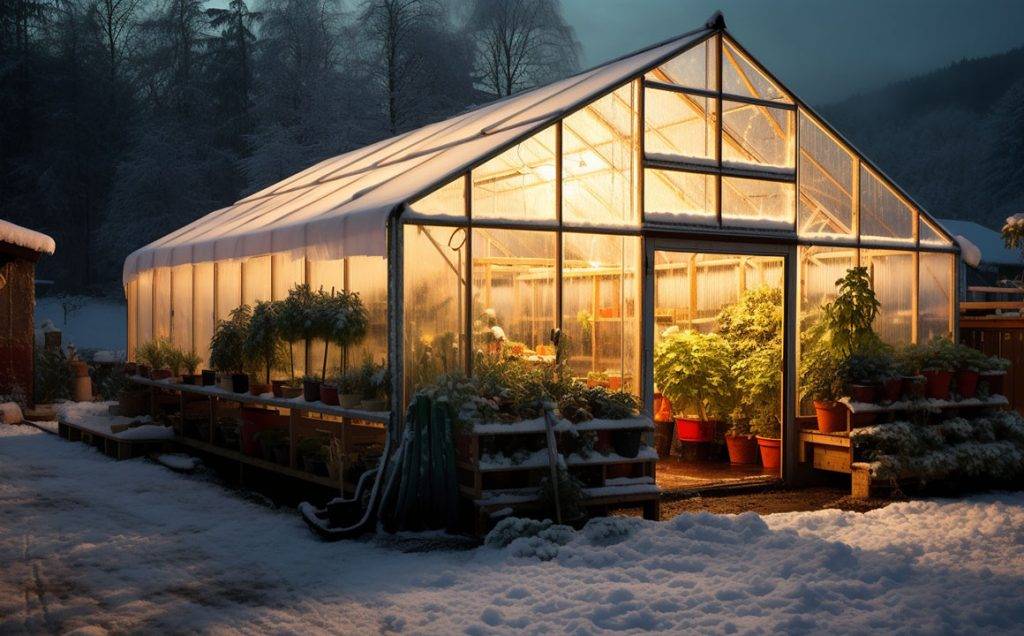As the winter season unfolds, nurturing and safeguarding your vegetable garden becomes a paramount concern. In this article, we’ll delve into practical and accessible methods to shield your winter vegetables from the adversities of the cold season, ensuring a thriving garden even in the face of frosty challenges.
Embrace the Blanket Technique
When winter’s chill descends, one of the simplest yet most effective strategies to safeguard your winter veggies involves embracing the “blanket” technique. Picture this: a protective layer of mulch enveloping your plants like a cozy comforter. Opting for organic materials such as straw or shredded leaves provides an excellent insulating barrier against the biting cold.
Beyond its thermal benefits, this natural covering also plays a crucial role in moisture retention. Winter air tends to be drier, and maintaining adequate soil moisture is key to the well-being of your plants. The blanket of mulch acts as a moisture regulator, preventing excessive evaporation and ensuring your winter vegetables remain hydrated.
Cloak and Dagger
For a more sophisticated defense against winter’s frosty embrace, consider employing the “cloak and dagger” approach with row covers. These lightweight fabric shields serve as a protective barrier, guarding your plants from the harsh elements while allowing essential sunlight to penetrate.
The installation of row covers is a straightforward yet impactful process. During frosty nights, these covers act as sentinels, preserving a warmer microclimate around your winter vegetables. This extra layer of protection can make a significant difference, shielding your plants from the potential harm that frost can inflict.
Greenhouse Magic
For the dedicated winter gardener, investing in a mini greenhouse can be a game-changer. Think of it as a magic haven where your vegetables can thrive despite the external chill. While this option requires a bit more commitment and investment, the benefits in terms of plant health and yield can be substantial.
A mini greenhouse creates a controlled environment, shielding your vegetables from the vagaries of winter weather. It’s not just about warmth; it’s about creating a microclimate where your plants can continue to flourish. It’s an investment in the future of your garden, offering a haven for growth and productivity even when the weather outside is less than favorable.
Master the Art of Companion Planting
Nature has its own way of providing defense mechanisms, and you can harness this power through the art of companion planting. This technique involves strategically placing plants that complement each other in close proximity. For example, planting garlic alongside your winter veggies can act as a natural deterrent to pests.
Companion planting goes beyond pest control; it fosters a harmonious ecosystem within your garden. Some plants enhance the growth of others or provide natural shade, creating a more resilient and balanced environment. It’s a holistic approach to gardening that aligns with the principles of working in harmony with nature.
Don’t Forget the Watering Routine
While winter may bring colder temperatures, the need for proper hydration remains paramount. Adjusting your watering routine to suit the season is crucial for the well-being of your winter vegetables. While they may not demand as much water as in the warmer months, maintaining a consistently moist soil is essential.
Consider a deep watering session before an anticipated frost. This not only provides essential moisture but also contributes to an added layer of insulation for your plants. Well-hydrated plants are more resilient to temperature fluctuations, ensuring they can withstand the challenges that winter may throw their way.
Mulch, Mulch, Mulch!
Mulching isn’t a one-time affair; it’s an ongoing commitment to the well-being of your winter garden. Regularly replenishing the mulch around your vegetables serves as a proactive measure to maintain a stable soil temperature.
Temperature fluctuations can stress your plants, making them more susceptible to winter-related challenges. Mulch acts as a buffer, insulating the soil and providing a more consistent environment for your winter vegetables to thrive. It’s a simple yet effective practice that pays dividends in terms of plant health and overall garden resilience.

